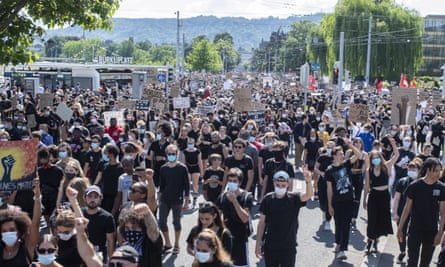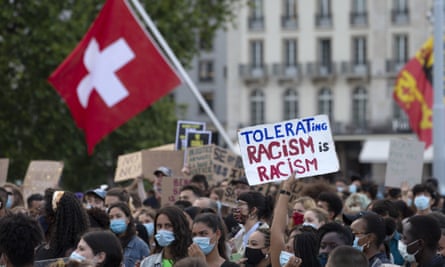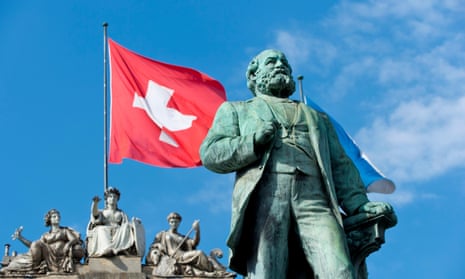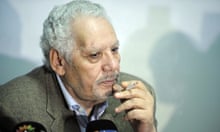Alfred Escher wielded so much power and influence during his lifetime that he was nicknamed King Alfred I. An immense bronze statue of modern Switzerland’s founding father stands, fittingly, in front of Zurich’s main train station. Escher was a politician, but he was also an entrepreneur who founded the country’s railway network along with its leading university and the banking giant Credit Suisse.
The statue in Zurich has memorialised Escher for more than 100 years, but it may not be there much longer. A recently published study on Zurich’s involvement in slavery details problematic connections to Escher. The Escher dynasty owned a coffee plantation in Cuba with more than 80 slaves and Escher himself was involved in its sale.
The research was commissioned by the city of Zurich and joins a growing effort, accelerated by the death of George Floyd in the US and the Black Lives Matter protests in July, to re-examine the past and recognise the role that slavery and colonialism played in making Switzerland one of the world’s richest countries.
Switzerland – or the city states that acted as its predecessor – never had any colonies, but it has a colonial past.
It was involved in the slave trade through financial investments in ships that carried more than 170,000 Africans to the Americas. At one point, the city of Berne was the largest shareholder of the British slave trading firm the South Sea Company. Zurich also had shares in the South Sea Company and was financially involved in the deportation of more than 35,000 people, the study says.
Through its textile industry, which was key to the country’s industrialisation, Switzerland was closely tied to the triangular slave trade. “Through the production of printed cotton fabrics, known as indiennes, Switzerland acted as a supplier for the transatlantic slave trade,” said Marcel Brengard, one of the historians who conducted the study. “The indiennes were sold in west Africa, and the money made from the sale was then used to purchase slaves.”
Hans Fässler, who has been central in the country’s effort to uncover the past, said: “Even historians would say, ‘What? Switzerland? Slavery? No!’” The historian and activist said that over the last decade there had been a growing understanding of the neutral country’s colonial history. “This has to do with a new generation of researchers and key publications that have put the subject on the agenda in universities,” he said. But Fässler also points to the impact the demonstrations following Floyd’s death had in drawing awareness to Switzerland’s colonial past. “Black Lives Matter gave everything more impetus,” he said.
For Brengard, the variety of ways in which Swiss citizens were connected to the transatlantic trade is particularly surprising. “People came into contact with slavery in a number of different constellations,” he said. “We found soldiers who were active on slave boats, plantation owners, civil servants, priests and even a captain in the American civil war.”
There are also known cases where slaves were brought to live in Switzerland, Brengard said. “Some individuals who became wealthy in the Atlantics took their slaves with them when they returned,” he said. It is difficult to determine how widespread this practice was. “We only know of the cases that were documented because a slave landed in an administrative process such as a legal case or a baptism.”

Thousands took to the streets across Switzerland this summer in solidarity with the Black Lives Matter movement in the US, and to protest against racism in today’s Switzerland. Yuvviki Dioh gave a speech at the demonstration in Zurich, attended by more than 10,000 people. “Switzerland has a lot of covert, institutional racism,” the PhD student said. She added that people of colour faced many forms of discrimination in Swiss society, from negative stereotyping in their everyday lives to being subjected to racial profiling.
Dioh is a member of BIPOC.WOC, a collective fighting racism in Switzerland, and through the group she has been part of conversations with Zurich’s city council about how the city should best deal with remnants of its colonial past. Buildings named using a derogatory term for black people still exist, as does a mural with a racist depiction of a person of colour. Dioh said it was important these displays were removed. “Public life has to be an inclusive space, but for a lot of people of colour, this is a constant reminder of how our position in society is valued,” she said.
Things are beginning to change. Zurich’s mayor, Corine Mauch, said it was important that Zurich’s connections to slavery were openly addressed. “The city now wants to examine how the topic can be made visible in public spaces in an appropriate manner,” she said. Mauch added she was glad there was now more knowledge about this chapter of history. “Colonialism without owning any colonies is our shared past. We must not close our eyes to this.”
Fässler has also been campaigning for change. In 2019 the historian and activist founded Scores, the Swiss Committee on Reparations for Slavery, and he has been working to have Switzerland included in the Caricom reparation commission’s list of countries targeted for slavery reparations. “Switzerland was part of the transatlantic slavery system and we owe the descendants of the victims reparations,” he said.

He has also attempted to make Swiss banks subject to US slavery-era disclosure legislation, but said the involvement of banks in Switzerland was not comparable to that in the US, where enslaved people were counted as assets or accepted as collateral for loans. Switzerland’s involvement in slavery was mainly financed through private individuals and merchant bankers, as the nation’s modern financial system was only in the making, he said.
As for Escher, the fate of his statue is being considered by a working group, along with 25 other monuments in Zurich. The question remains as to what extent Escher’s wealth and ability to contribute to the founding of so many institutions was acquired by profiting from the transatlantic trade. The amount for which the plantation in Cuba was sold remains unknown.
For Dioh, it is clear the statue should be taken down. “I don’t think that a person who was complicit in slavery should be part of our urban spaces,” she said. She recommends that the monument, along with other colonial remnants, be put in a museum where they can be properly contextualised. “It is not about forgetting the historic figure, but to be absolutely transparent that the development of Zurich and Switzerland came with a very high price.”










